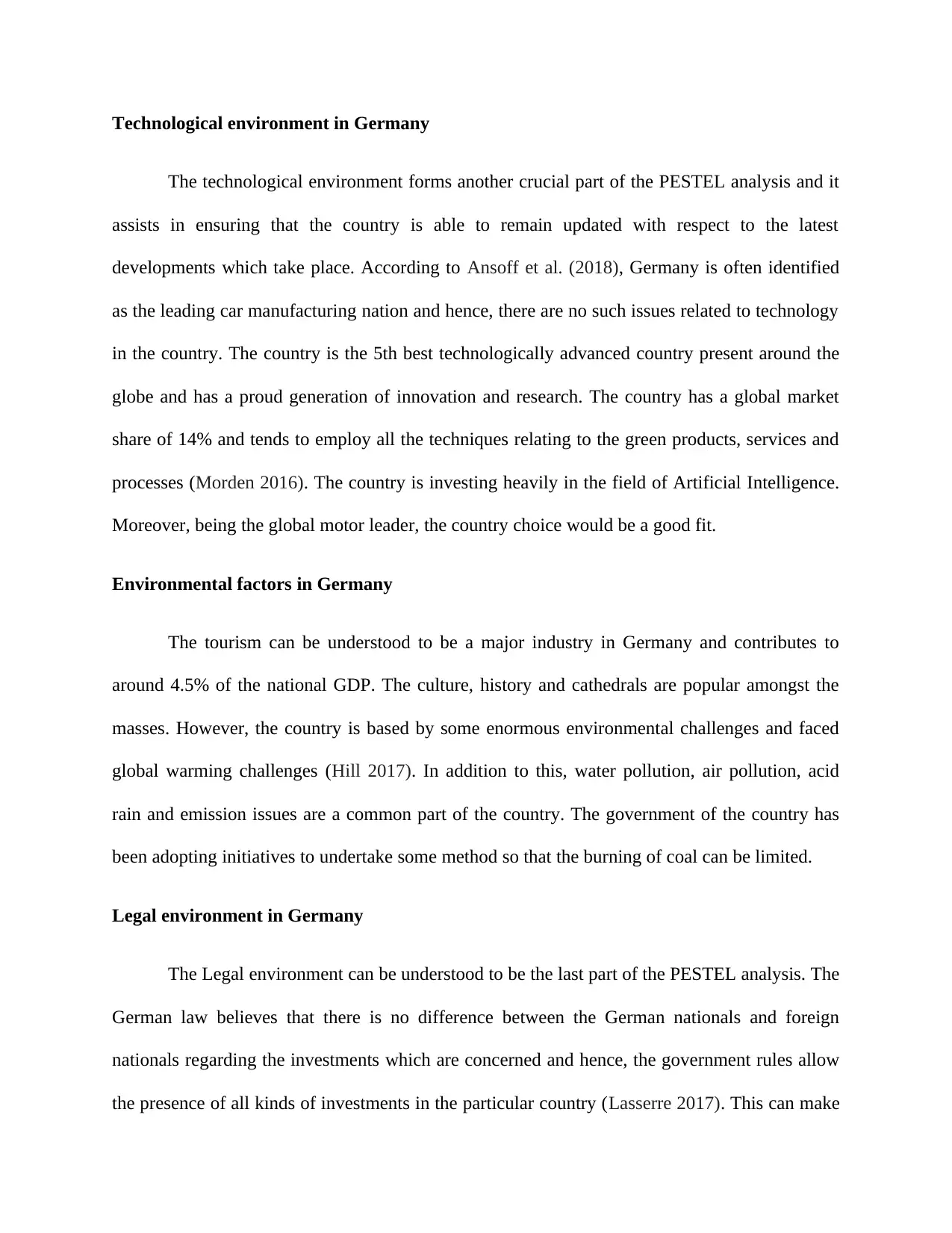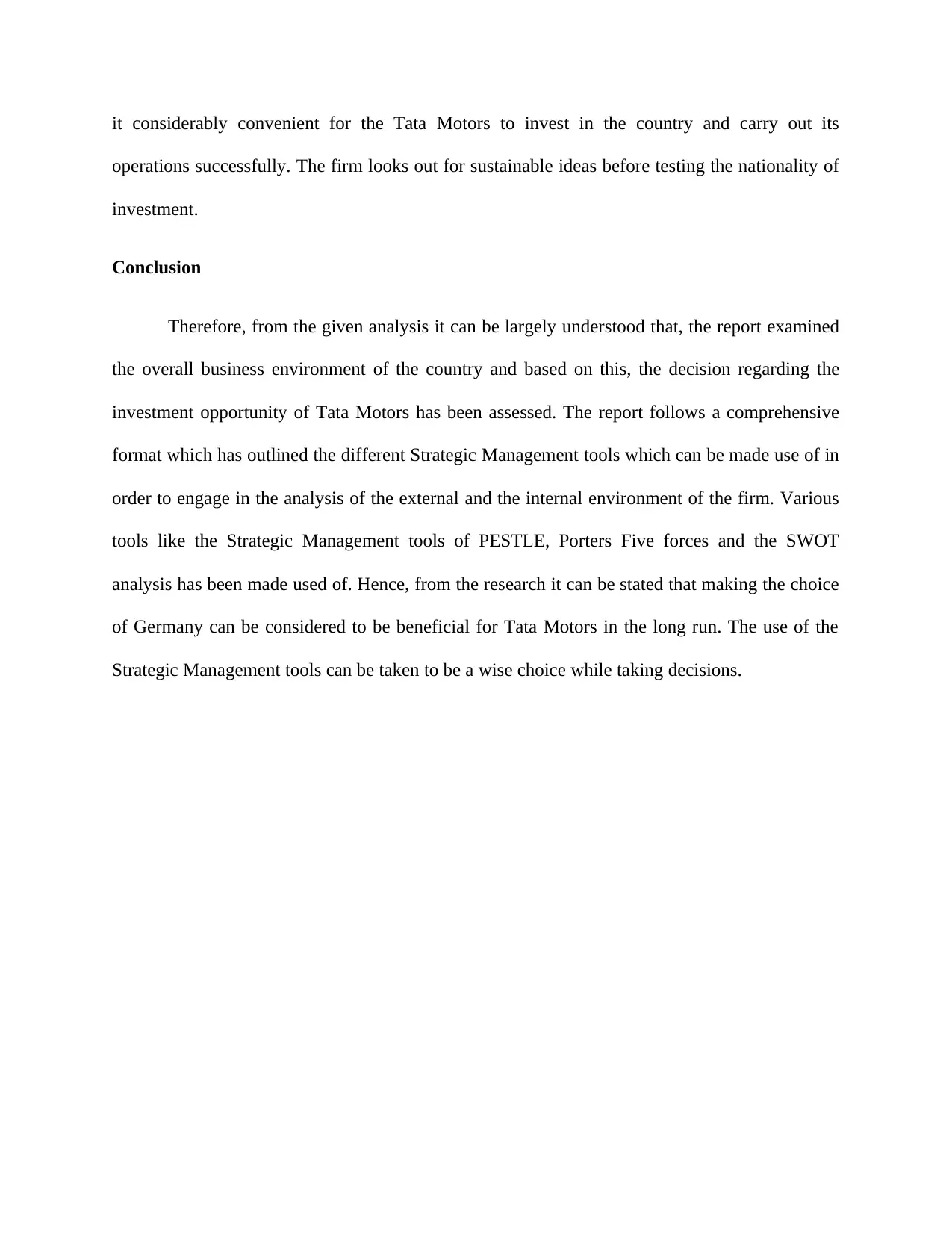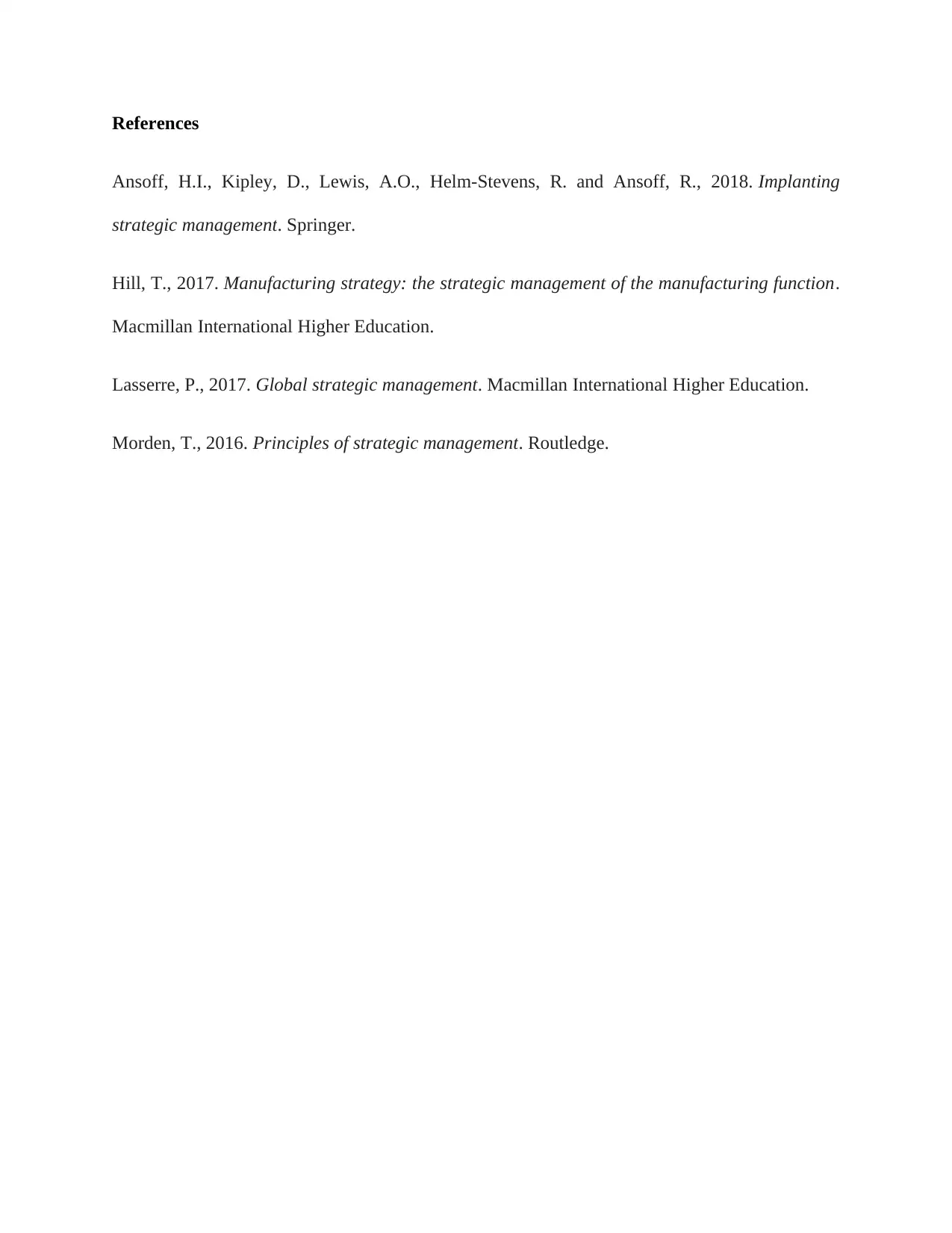Strategic Planning for Tata Motors: Germany Market Entry Report
VerifiedAdded on 2022/09/18
|3
|594
|29
Report
AI Summary
This report assesses the business environment in Germany to determine the feasibility of Tata Motors' market entry, considering Brexit. The analysis employs the PESTEL framework to evaluate the political, economic, social, technological, environmental, and legal factors impacting Tata Motors. The report highlights Germany's technological advancements, environmental challenges, and legal environment, offering a comprehensive view of the strategic landscape. It analyzes key strategic issues, providing recommendations for Tata Motors to navigate the complexities of the German market. The analysis also leverages Porter's Five Forces and SWOT analysis. The conclusion supports the strategic choice of Germany for Tata Motors' long-term benefits, emphasizing the importance of strategic management tools in decision-making.
1 out of 3










![[object Object]](/_next/static/media/star-bottom.7253800d.svg)